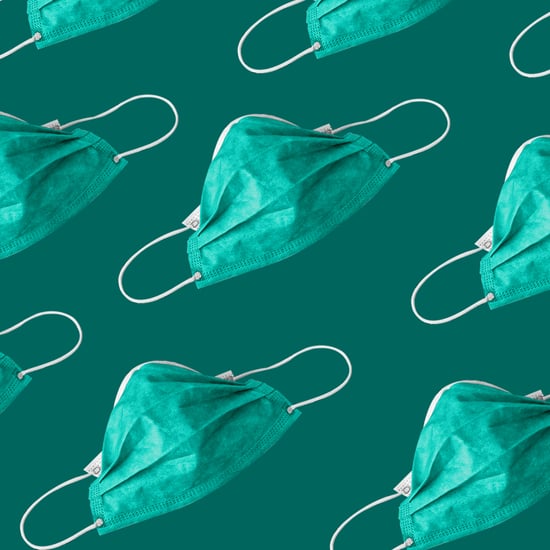Is It Safe to Go to the Beach During COVID-19?
Everything You Need to Know to Stay Safe at the Beach During COVID-19

The sun is out, the temperature is up, and that means one thing: it's beach season. If you spend the cold winter months daydreaming of beach days, you're probably clamoring to get to the ocean and soak up the sun. But of course, this isn't a normal summer. Although cities and states are gradually reopening, the spread of the novel coronavirus is far from over, and it's our responsibility to make sure we're taking all necessary precautions to keep ourselves and others safe.
The good news is that experts say it is indeed safe to go to the beach this summer, as long as you take some extra steps. Steven Quay, MD, PhD, a physician-scientist and author based in Seattle, told POPSUGAR that because the beach has wind and salty spray in the air and people typically spread out, it's actually quite safe. "Because the water of the ocean and the adjacent land have very different responses to the warming effect of the sun, there's an almost constant wind at the beach," Dr. Quay said, citing a recent study that suggests that cities and locations in China and Italy with higher wind speed had lower rates of COVID-19 cases. "Given that effect, being at a windy beach versus a still-air part of town away from the beach, [there may be] fewer cases," he said.
Then there's the salty spray from the ocean — the aerosol particles that contain water, salt, and lots of ocean microbes. "Importantly, they also contain a large and diverse collection of fatty acids, those long carbon chain chemicals we all know commonly as soaps," Dr. Quay explained. This means that if a person's sneeze, cough, or breath droplet merges with a sea aerosol and then floats on the wind and "dries" in the air, the salt concentration increases, and the fatty acids attack the membrane of the virus. Dr. Quay noted that this isn't something that will happen with freshwater lakes.
Do I Need to Practice Social Distancing at the Beach?
Of course, this information from Dr. Quay doesn't mean you can quite literally throw caution to the wind. No one likes being packed together on the beach even under normal circumstances, but social distancing is crucial on beach days this summer. Chad Sanborn, MD, who specialises in pediatric infectious diseases at KIDZ Medical Services in West Palm Beach, FL, emphasised the importance of staying at least six feet away from other beachgoers as much as possible, even while you're in the water. (When you're not in the water, a cloth face mask can give you added protection.) "This may mean trying to visit less-crowded or more out-of-the-way beaches where social distancing may be easier," Dr. Sanborn told POPSUGAR.
And six feet is the bare minimum — a recent review of available evidence published in The Journal of Infectious Diseases found that coronavirus particles may travel between eight and 26 feet. "You're likely to be exposed to lower concentrations of the virus at a greater distance, though," Dr. Sanborn said. "While staying 26 feet away from others may be a bit much to ask and you don't necessarily want to plan a beach day as if you were designing a research experiment, perhaps sitting at the less-concentrated edge of beachgoers, preferably upwind from the crowds, would be advised."
He added that you should also try to limit the number of people in your own party. "You may know what your immediate party has been doing and if they've been sick, but that roommate's cousin's girlfriend may be more of a wild card," Dr. Sandborn said. And, of course, if you're not feeling well, stay home so you don't risk infecting others.
Do I Still Need to Wash My Hands Frequently?
Although the sand and water are safe to touch, Dr. Sanborn said to keep in mind that you'll likely be touching shared surfaces like parking meters, picnic tables, bathroom door handles, and buttons on public showers. Though the Centres For Disease Control has signaled that the coronavirus is much less likely to spread on surfaces than through close contact with an infected person, it's still important to pack your hand sanitizer, as soap and water aren't as readily available at the beach.
Look for a brand that's at least 60 percent alcohol, and rub your hands together until they're completely dry, which should take about 20 seconds.
POPSUGAR aims to give you the most accurate and up-to-date information about the coronavirus, but details and recommendations about this pandemic may have changed since publication. For the latest information on COVID-19, please check out resources from the WHO, CDC, and local public health departments.








